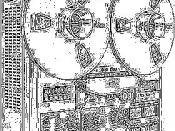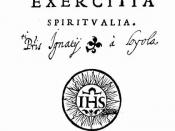The main theme of "The Star" by Arthur C. Clarke deals with faith. Clarke defines faith as having belief and trust in God with strong conviction. Clarke believes that one must have faith not only during blissful times, such as during the time of creation, but also during time of anguish, such as when destruction occurs. God "created" when a star flew over Bethlehem, just as God destroyed a star, the Phoenix Nebula, and its surrounding planets including any life that may have lived there. God does not have to justify His actions to man. God can do as he pleases, his actions do not have to follow a logical sequence. Just because negative events are occurring does not mean that God does not exist. A minor theme in the story deals with believing two ideas, religion and science, that completely contradict each other. "The Star" combines these drastically different ideas into one story.
The protagonist is a renaissance man. He is both a scientist and a religious man; more specifically a chief astrophysicist of a spaceship and a Jesuit. He is having trouble deciding if he should keep his faith. He is also a very intelligent man that published many scientific articles in the Astrophysical Journal and in the Royal Astronomical Society Notices. He also seems to resemble the Greek philosopher Socrates; he questions everything and he does not accept new ideas easily. His main goal is to explore a star that exploded, the Phoenix Nebula. As the story progresses the protagonist regains his faith. From the beginning of the story when he questions if the crucifix still stands for something to the end of the story when he accepts that God does what He does for a reason. The antagonists in the story are nature and the ship...


